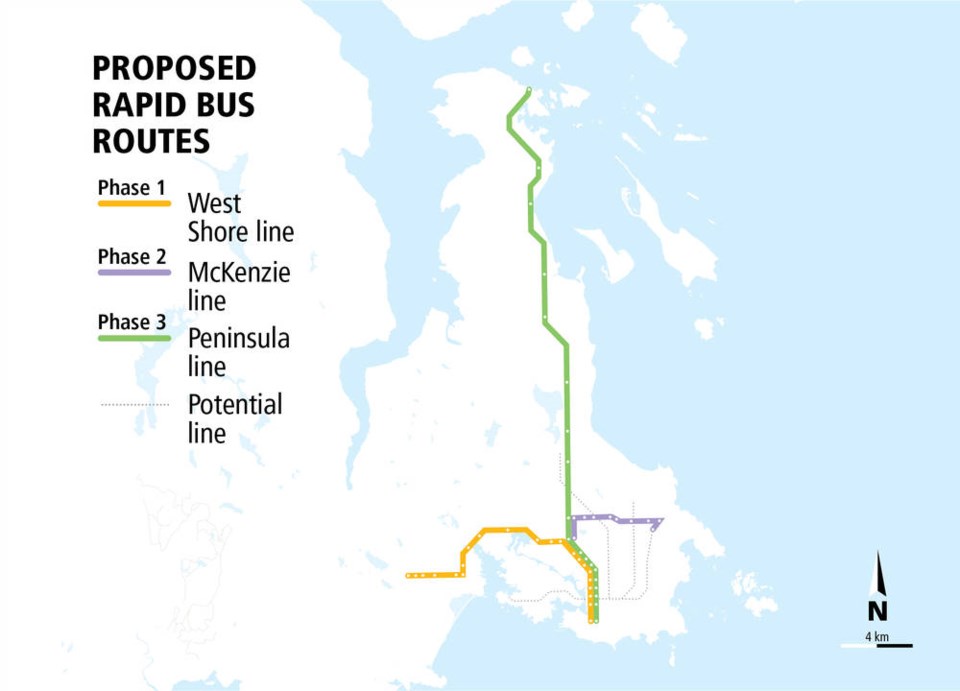B.C. Transit has unveiled plans to establish, within three years, a rapid bus service between the West Shore and downtown Victoria that will feature new vehicles travelling more frequently along expanded routes and enhanced amenities for passengers.
The Victoria Regional RapidBus Implementation Strategy would build on already established dedicated bus lanes along Douglas Street and the Trans-Canada Highway with the goal of connecting areas with the highest travel demand.
The strategy has also identified potential corridors for rapid bus travel along McKenzie Avenue between Uptown and the University of Victoria, and between downtown and the Saanich Peninsula.
Rapid bus transit around the region along major corridors has been considered for years.
“What’s new is we have a unified strategy between multiple partners — the Ministry of Transportation, local municipal governments and B.C. Transit,” said Matthew Boyd, B.C. Transit’s director of planning. “What we’ve done in this document is identify the three corridors where we will prioritize our energy and investment over the next three years.”
Boyd said they are in the very early stages of discussing the McKenzie corridor and the Peninsula route, but the main thrust, over the next three years, will be on the West Shore-to-downtown route.
He said the focus will be on establishing enhanced and expanded dedicated bus lanes, building new stations with improved amenities and more space, and creating distinct branding and livery for rapid buses so they can be easily distinguished from regular transit offerings.
The agency intends to significantly expand service, which will mean investing in new buses, Boyd said.
The intention is for these routes to be serviced with a high-frequency so riders won’t need to look at schedules, but will know to expect one at regular intervals.
At this point, there is no price tag on the initiative.
Boyd said B.C. Transit is working with the province and local governments to explore funding.
Transportation Minister Rob Fleming said the project is yet to be costed, but the province will take the lead.
“There are also new sources for public transit funding,” he said, noting Ottawa announced a fund for transit infrastructure during the pandemic.
Municipalities will be expected to assist with land assembly and land-use planning, while B.C. Transit also has a provincially funded capital budget.
Fleming said the strategy aligns with the regional growth strategy and the recently released South Island Transportation Strategy.
Rapid transit between high-growth areas like the West Shore and downtown and other parts of the region will be one of the key ways of getting more people to take public transit, he said. “More people using public transit means fewer personal vehicles on the road, reduced greenhouse gas emissions and a smaller carbon footprint.”
Bruce Williams, chief executive of the Greater Victoria Chamber of Commerce, said: “Getting people out of single-occupancy vehicles and into effective transit is a region-wide priority.”
The plan could help deal with the issues of traffic volume, congestion and carbon reduction, he said.
“This plan makes using transit more convenient. As the West Shore continues to grow, plans like this address an anticipated increase in road traffic.”



